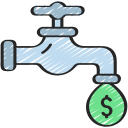
How to Repair Pipes Without Breaking the Bank
Repairing pipes can feel overwhelming, especially when you’re worried about expensive plumbing bills. However, quality pipe repair isn’t always out of reach for the budget-conscious homeowner. With some practical knowledge, the right tools, and a little confidence, you can tackle many pipe issues yourself or know how to work smartly with a professional. This guide will walk you through straightforward strategies and essential tips to fix pipe problems efficiently, all while keeping your finances in check.
Identifying the Problem Early
Leaking pipes rarely happen without warning. You might notice damp patches on walls or ceilings, unexplained spikes in your water bill, or strange noises when you turn on the tap. Paying attention to these early warning signs can help you address problems before they escalate. By investigating mysterious odors or discoloration, you can often trace the source of the problem and minimize the potential damage. Regularly checking underneath sinks, behind appliances, and in basements for moisture is a smart habit that can save both time and money in the long run.

Using Pipe Repair Tape and Sealants
Pipe repair tape and sealants are affordable, widely available, and easy to apply. Repair tape wraps around a leaky section, providing a temporary barrier to stop escaping water. Epoxy putty or silicone-based sealants can bond over cracks or holes, giving you time to arrange a professional repair if necessary. These products are best used as soon as you detect a leak and can prevent small drips from turning into bigger, costlier disasters. Following manufacturer instructions ensures a proper seal and extends the life of your quick fix.
Replacing Washers and O-Rings
One of the most common causes of leaks around taps and joints is worn-out washers or O-rings. These small, inexpensive components form the seal in valves and plumbing joints. After turning off the water supply, you can unscrew the affected fitting, replace the old washer or O-ring, and reseal the joint. This simple operation can often resolve drips and minor leaks, restoring proper function and preventing water wastage. Taking care to match the size and type of washer ensures a snug fit and an effective repair.
Tightening Loose Connections
Loose pipe joints, couplings, or threaded connections frequently lead to minor leaks or rattling noises. Gently tightening these parts with an adjustable wrench or pliers may be all that’s needed to stop a leak. Over-tightening, however, can damage fittings and create worse problems, so applying force cautiously is key. Often, simply repositioning seals or securing clamps can restore stability and a watertight fit without the need for costly replacements or professional intervention. Checking these areas regularly keeps your plumbing in top shape.
When to Call a Professional (And How to Save)
Recognizing Job Complexity
If you encounter persistent leaks, large-scale water damage, or cannot locate the source of an issue, it’s time to seek professional assistance. Complex problems such as major blockages, corroded main pipes, or pipe bursts often require specialized equipment and expertise. Attempting these extensive repairs yourself could result in further damage and higher long-term costs. Knowing your own limits enables you to make a timely call for help, reducing overall repair expenses and safeguarding your home.
Gathering Multiple Quotes
Not all plumbers charge the same rates or offer the same services. Gathering multiple quotes from local professionals lets you compare prices and service options. Be clear about the problem’s nature and scope, and ask for itemized estimates. This process ensures transparency and may prompt providers to offer a better rate or extra value to win your business. Never feel pressured to choose the first plumber you contact; comparison shopping is a proven strategy for securing affordable, high-quality repairs.
Prioritizing Repairs
It’s not always necessary to fix every plumbing issue at once, especially on a tight budget. Discuss with your plumber which repairs are urgent and which can be postponed. Professionals can offer guidance on temporary fixes for less critical problems, helping you spread out costs over time. By addressing the most serious issues first, you protect your property from further damage while maintaining control over your repair expenses. This approach allows you to navigate pipe repairs without unnecessary financial strain.
